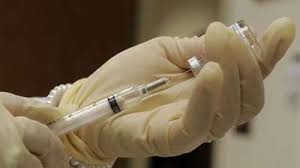Can an artificial protein defeat infection by supercharging immunity?
A genetically reengineered version of an immune system protein called properdin appears to activate a robust immune response against invading pathogens, according to a study published Monday in the journal PNAS. The researchers were led by immunologists at the University of Leicester, England, but hailed from universities in Egypt, Pakistan, Saudi Arabia and Toledo, Ohio.
When mice got a low dose of the recombinant protein and then, six hours later, were infected with the bacterium N. meningitidis, only 10% of them developed sepsis and showed evidence that the bacterium had gained a foothold in their bloodstream. By contrast, 16 hours after having been infected, 100% of the mice that had received a placebo injection became fatally ill.
Thirty-six hours after mice were infected with Streptococcus pneumoniae and at the same time got an infusion of properdin, none showed signs of illness, whereas 70% of similarly infected mice who got a saline solution instead of properdin were so ill they had to be euthanized. In the earliest phases post-infection, the pneumonia bacterium was scarcely able to gain a foothold in the treated mice, and the immune systems of those mice easily fought off the invading infection, the researchers reported.
The recombinant properdin appears to act on a little-understood component of the immune system called the complement system, in which blood-borne proteins such as properdin respond to the presence of pathogens by dispatching phagocytes to neutralize the microbes. The genetically engineered version of the protein used in these experiments enhanced the activity of the phagocytes, resulting in what appeared to be a turbocharged immune response to the bacteria that cause meningitis and pneumonia.
In test-tube studies leading to the current research, purified forms of properdin also looked as if it would enhance an immune response to other microbial invaders, such as E. coli and the gonorrhea bacterium. That suggests the strategy of enhancing the immune system might someday take up the slack where antibiotics fall short, losing their potency as invading pathogens evolve.
Worldwide, pneumonia kills as many as 1.2 million people a year. Invasive meningococcal infections claim the lives of another 135,000 annually, and leave many times that number with long-term disabilities and illness.


Comments are closed.